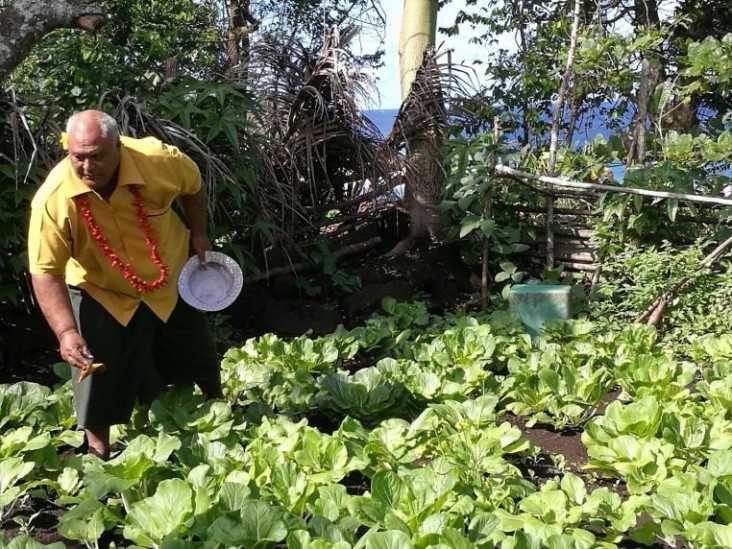
October 2016—Mafuatu Taulelei is the chief of Vaipu’a, a village on the southwest coast of Samoa's Savai’i island. Like many villages in Samoa, the people of Vaipu’a have relied on town markets to feed their families; but rising sea levels, cyclones and extreme rainfalls are harming agriculture and fishing, and resulting in food shortages.
To address this, Samoa’s National Adaptation Programme of Action called for communities to engage in small-scale farming so they are less dependent on increasingly unreliable food supplies.
Across the Pacific, climate change is affecting people’s daily lives. While civil society organizations have been developing solutions to adapt, many lack the funding and management needed to make lasting impact. USAID has responded with its Pacific-American Climate Fund.
Launched in 2013, the $24 million fund provides grants to civil society organizations in 12 Pacific countries to implement and scale up promising climate-resilient, community-level adaptation measures. In May 2015, USAID awarded a $736,000 grant to Matuaileoo Environment Trust Inc. to promote climate-smart organic farming in 50 Samoan villages.
The organization trains villagers in permaculture, the development of agricultural ecosystems that are sustainable and self-sufficient. Permaculture includes practices like creating kitchen gardens, where people grow nutritious produce in their backyards. Families consume what they grow, often selling excess produce to their neighbors. Permaculture also includes other holistic practices like balanced diets, compost management and rainwater catching.
Local leaders or Taiala (“path breaker” in the local language) spend one week on a 1-acre demonstration farm to learn about and practice permaculture. They return home to train others and establish farmers’ cooperatives.
Taulelei underwent this training in early 2016. “I saw right away this would benefit my village,” he said. “We had to go to town just to buy vegetables because we were not growing our own in Vaipu’a.”
The USAID-supported project provided seedlings for cabbage, eggplant and other vegetables, and helped Taulelei train fellow villagers in permaculture. Today, vegetable scarcity is a thing of the past in Vaipu’a.
USAID-trained villagers manage more than 20 kitchen gardens. Others who did not participate in the training picked up permaculture from their neighbors. Collectively, their gardens supply vegetables for the more than 400 villagers. People no longer completely rely on the town market for produce.
Neighboring villagers have heard about Vaipu’a’s booming gardens and have visited to learn more about the practice. Taulelei mentors them and shares seedlings. “We are doing this to meet our needs and to be better able to deal with the effects of climate change,” he said.
Through this project, 25 Samoan villages like Vaipu’a generate their own food supplies in 450 kitchen gardens, helping people become more self-sufficient and, thus, more resilient to disasters and climate change.
To date, USAID’s PACAM has awarded 22 grants totaling almost $9.5 million to help communities across the Pacific adapt to their changing climate and secure a more stable future for the region.
LINKS
Follow on Facebook







Comment
Make a general inquiry or suggest an improvement.